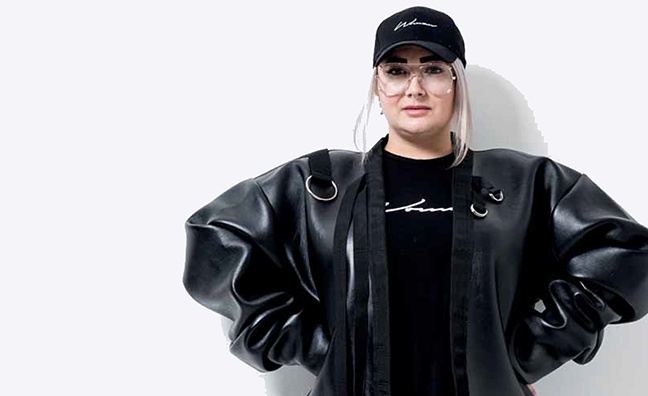A year ago, Women In CTRL conducted an analysis of the board make-up of 12 key UK music industry trade organisations. The results showed a lack of diversity within these organisations who are responsible for delivering an equitable, diverse and inclusive industry.
One year on, Women in CTRL has repeated its analysis, auditing the gender make-up and representation of Black women amongst the boards of directors, CEOs, and chairpersons of those same 12 organisations and identifying the progress made.
The key findings are:
Female representation has increased, but women are still underrepresented:
-
Across the 12 organisations, 42% of board members are women, an increase from 34% in 2020.
-
In 2020, 9% of chairs were women, the equivalent of one female chair across the 12 organisations. This figure is now 27%, with three female chairs.
-
CEOs remains unchanged at 27%, or three women.
Representation of Black women has doubled, but from a very low base:
-
The share of board seats held by Black women has doubled to 6% (11), from 3% (5) in 2020.
There are still no Black women CEOs or chairs
Women in CTRL also asked 100 women across the industry to use their voice and share what it means to them to have a Seat at the Table. In the report, Aluna Francis, Jin Jin, Afryea Henry-Fontaine, Sian Anderson, Suzanne Bull, Naomi Pohl, Jasmine Dotiwala, Vick Bain, Jackie Davidson, Colleen Theis and dozens more today speak out to empower others.
Our work is far from done, the stats are still stark, and a far way off true equality
Nadia Khan
Over the last year there have been notable examples of good practice amongst these organisations which have driven important changes in representation:
-
AIM (Association of Independent Music) – the most improved on board-level gender representation, from 35% to 65%. On ethnicity, it also increased representation of Black women on the board from 6% to 12%. It also elected a female Chair.
-
PPL – the second most improved on board-level gender representation, increasing from 6% to 31%. It is the most improved for representation of Black women on the board, from 0% to 13%.
-
ISM (Incorporated Society of Musicians) - increased gender representation from 41% to 56% women on the board. It elected a female chair.
-
The Ivors Academy – two directors stepped down to allow for increased diversity on the board. It achieved 50/50 gender balance on the board and elected one Black woman to the board, taking their representation from 0% to 6%.
-
FAC (Featured Artists Coalition) - added two observers onto the board ahead of AGM elections to help potential candidates become familiar with the board and to encourage diverse applicants.
-
MPG (Music Producers Guild) - increased gender representation on the board from 40% (2) to 60% (3) women.
Last year Women in CTRL published its WIC Diversity Pledge, asking all 12 trade organisations to commit to work with it towards an equitable, diverse and inclusive future.
To continue to increase diversity at board-level in the music industry, PPL and Women in CTRL are launching a board development programme that will consist of five sessions, beginning in August. The sessions will be available to PPL members and the broader industry and will cover topics aimed at helping attendees get a Seat at the Table, such as understanding boards, canvassing votes and promoting yourself.
Nadia Khan, Women in CTRL founder and chair of AIM, said: “I commend those organisations that have taken steps towards real change, and it’s promising to see. But our work is far from done, the stats are still stark, and a far way off true equality. True diversity goes beyond female representation to minority groups, disability, socio-economic status, sexual orientation and education. Let’s try to fix the system and have real conversations. What is it about the system that doesn’t allow underrepresented groups to reach the top? Why don’t we see more women in chair or CEO positions? Let’s identify the barriers and work together to break them down.
“I look forward to launching the Women in CTRL Board programme with PPL and bringing this training and knowledge to the wider industry. I want to thank Kate Reilly and Peter Leathem at PPL for the work they have done to bring about change over the last year, and for their open response and engagement following the initial Seat at the Table report.”
Peter Leathem, CEO of PPL, said: “The killing of George Floyd last year and the subsequent protests against systemic racism prompted an overdue discussion of the demographic disparities amongst those at the top of the music industry, including at PPL. Last year’s Seat at the Table report showed we could do much better and we would like to say thank you to Nadia for contributing to the positive steps we have made since then and for asking us to support and work with her on this second edition.
“The gender and racial diversity of our board has increased, and we continue to consider and work on the overall diversity of our board and senior management teams. Whilst we have made progress there is a lot more to be done so PPL welcomes the second edition of Seat At The Table. We very much look forward to launching a Board Development programme with Women in CTRL to help our members and the wider industry achieve a Seat at the Table.”










